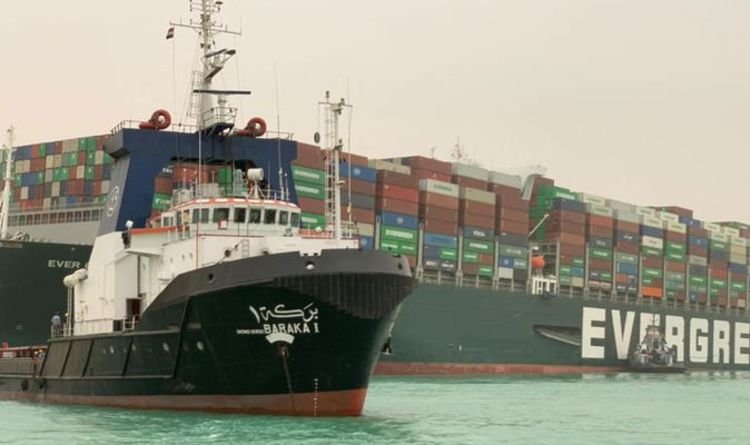Oil falls as demand concerns trump Suez Canal disruptions

Oil prices fell more than 1% as fresh coronavirus lockdowns revived worries about demand for oil products, even as tug boats struggled to move a stranded container ship blocking crude oil carriers in the Suez Canal.
Brent crude futures slid 77 cents, or 1.2%, to $63.64 a barrel at 0736 GMT, after jumping 6% overnight.
U.S. West Texas Intermediate (WTI) crude futures dropped by 87 cents, or 1.4%, to $60.31 a barrel, after climbing 5.9% overnight.
Both benchmarks fell over 2% earlier in the session.
“Oil is shifting lower, and in addition to lockdown woes, the slow uptake in Chinese buying, evidence of rising Iranian exports and clear signals that the physical market was not reflecting the futures market continues to cloud the near term viewfinder,” said Stephen Innes, chief markets strategist at Axi.
Prices, which tumbled earlier in the week on worries about tighter pandemic curbs in Europe and vaccine delays stalling fuel demand growth, sharply reversed on Wednesday on news of the grounding in the Suez Canal, potentially blocking 10 tankers carrying 13 million barrels of oil.
Dozens of ships were in the five waiting zones for passage through the nearly 200 km (120 mile) canal, with more approaching the area.
“The longer this disruption lasts the more likely we see refiners (and) buyers having to turn to the spot market to ensure supply from elsewhere,” ING Economics said, adding that shipping companies faced a decision on whether to travel via the Cape of Good Hope in South Africa, causing delays.

The market was also helped on Wednesday by data showing U.S. gasoline demand improved and refinery run rates were picking up as well as data pointing to strong Euro zone economic activity this month. [EIA/S]
However, analysts said such supportive factors were likely to be overshadowed by growing concerns about global demand.
“As much as those factors were there, it doesn’t really erase the demand concerns questions that were asked earlier this week,” said Commonwealth Bank commodities analyst Vivek Dhar.
“And while the focus was on Europe, we also have rising COVID-19 cases in places like India and Brazil, developing economies which are really critical to the story for sustainable oil demand growth.”
India on Wednesday reported its highest one-day tally of new infections and deaths and said a new “double mutant” variant of the coronavirus had been found.
Given the persistent demand worries and falling prices, expectations are growing that the Organization of the Petroleum Exporting Countries and allies, together called OPEC+, will roll over their current supply curbs into May at a meeting scheduled for April 1, four OPEC+ sources told Reuters.
“Oil markets are unlikely to renew their upward momentum aggressively until OPEC+’s next meeting in early April, which should leave production cuts unchanged,” said Jeffrey Halley, senior market analyst at OANDA.


















